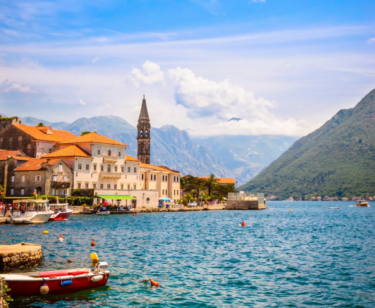Recent Release | 15 Nov 2022
European Tourism 2022 – Trends & Prospects (Q3/2022)

Tourism Consulting Team
Tourism Economics

EUROPEAN TOURISM HAS RALLIED DESPITE COST-OF-LIVING PRESSURES
Europe enjoyed a strong tourism rebound over the summer months as Covid-19 disruptions abated. However, the region was not exempt from turmoil arising from the prolonged war in Ukraine, labour shortages, elevated food and energy prices, and stalling economic growth. Although gas prices have recently decreased, attributed to almost full storage levels and reduced demand in most EU countries due to a combination of warmer than average weather and energy saving initiatives, prices still remain sky-high and are expected to cause economic turmoil this winter.
Travel costs have inevitably spiralled upwards, adding to the many factors sapping consumer spending and confidence. Despite acute challenges, Europe’s travel bounce-back is expected to continue in the remaining months of 2022, led by cost-conscious and value-driven travel. Encouraging data suggests a positive outlook in 2022, with the region expected to recover 73% of 2019 overnight tourist arrival volumes. However, 2019 levels will only be achieved by 2025.
Travel enthusiasm persisted this summer with over half of reporting destinations recovering to at least 77% of 2019 levels of foreign arrivals. The rebound was led mostly by Southern Mediterranean destinations. Based on data to August, Turkey (-5%), Serbia (-8%) and Luxembourg (-9%) made the strongest comeback. While Turkey remains a good value destination, Serbia is open to Russian travellers without visa requirements. Indeed, there has been an influx of Russians arriving in Serbia. In some cases, tourism is likely being used as a pretence for travel; in reality, many are likely fleeing Russia as a consequence of Putin’s war in Ukraine and the impact this has had on life within an increasingly isolated Russia.
About the team
Our consulting team at Tourism Economics are the world’s leading analysts of the global tourism and travel sector. They combine their expert insight with our state-of-the-art economic models and tools to answer the crucial questions facing our clients. Lead consultants on the project were:

Dave Goodger
Managing Director, EMEA, Tourism Economics
You might be interested in

Global Cruise Trends Report: March 2024
This report delves into research conducted in Q4 2023 across five key cruise markets, all indicating strong cruise demand. Our comprehensive market intelligence aims to equip the travel industry with insights into the significant growth potential in the cruise industry.
Find Out More
Breaking Travel News: Ground-breaking report reveals that as Travel & Tourism continues to grow, its water intensity falls
The World Travel & Tourism Council (WTTC) worked with Accenture and Oxford Economics to produce the ‘Water Roadmap for Travel & Tourism’ report, which reveals how the total water intensity by global Travel & Tourism continues to decrease as the sector continues to grow.
Find Out More
Disney’s Effect on Fueling Florida Economy, Jobs and Tourism
Walt Disney World Resort, one of the world’s most visited vacation destinations, generated $40 billion in economic impact across Florida and more than a quarter of a million total jobs in fiscal year 2022, according to a study from Oxford Economics.
Find Out More
WTM Global Travel Report
Tourism Economics is proud to partner with World Travel Market to produce this comprehensive overview of travel and tourism. Consumers continue to demonstrate seemingly insatiable demand for travel despite a complex and dynamic backdrop, including economic and social challenges. By examining the past and looking to the future we can better understand today’s opportunities. We hope this report sparks new meanings and empowers tourism organisations to make bigger and better decisions.
Find Out More